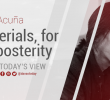I hope this essay will be taken as an appeal and not an attack by academics of a certain stature who tend to be uncritical and unscientific—attitudes uncalled for at all times, and more so, amid this pandemic. Elsewhere, I listed some contagious (viral?) ruling class ideas that feed on each other and endanger welfares and lives of the general population. Let’s focus on two prevalent ones among the supposed “thinking” class: “we’re the virus” variations (WTVs) and toxic positivity variants (T+Vs), both of which obscure the critical situation that we ought to overcome together.
In “ideo production,” the significance of specifying who the pronoun “we” includes and excludes was discussed. Are all of us causing the very same problems? Are the impacts of every individual in, say, environmental destruction or the current spread of COVID-19 similar? Should all of humanity take the blame for natural calamities that ravaged livelihoods across the globe? Have all of us equally benefited from overproduction and extraction (or untoward depletion) of the planet’s resources? Instead of identifying who or what shall be held accountable, WTVs encourage individuals to point fingers at themselves and blame their personal shortcomings, instead of analyzing the structures in place that fail to address issues at hand; in the case of the pandemic plaguing the country: the militarized response of the national government that downplays medical solutions and aggravates the already-grave situation of public health.
The military and the police are deployed to discipline those they deem as threats (read: the poor). Lockdown, quarantine, suspension, checkpoint, blockade, punishment—all these and more terrorize the people into submission. No mention of any sort of subsidy, aid, mass testing, rent freeze, and other acts of relief. Excluded in “the people” are the VIPs (and their inner circles), who earlier instructed us to “stay home” because for our benefit, they “went to work” with the frontliners (health workers combatting COVID-19). Due to the shortage and cost of test kits, frontliners themselves are not eligible for tests—unless symptomatic. More special than health workers, VIPs—even asymptomatic ones—were prioritized; indeed, they are another breed apart from the rest of us disposable mortals.
One of them (not a celebrity but sounds like one) tested positive; he didn’t just spread the news but also the virus in parties, a grocery, a hospital. He drew flak as he puts lives of medical professionals, patients, and infants directly at risk; not far from reality is his role in the exponential increase in cases of COVID-19 infections that might further imperil the marginalized and vulnerable. The VIP said that there will be “bashers” (as if critics are merely fault-finding “haters”), whether the results are negative or positive—such as the result of his fellow VIP who thanked God he is safe. All VIPs want are good vibes and prayers, because they are doing their best to help… themselves.
Then, came an oft-repeated WTV: the “we deserve the leaders we elected” rhetoric—from esteemed “academics,” who usually preach the unmatched power of writing as a candle in the dark but unfortunately miss the danger of imprecision and generalization in these trying times. Most “elected” officials were elected by sketchy PCOS machines, and even without these, the electoral system has always been designed to keep compradors, landlords, and bureaucrat capitalists in positions of power. Blaming the disenfranchised is surface-level analysis, unfitting for intellectual leaders or “scholarly” influencers. Moreover, such simplistic blanket statements indirectly contribute to perpetuating the culture of impunity by delaying justice, leaving the real culprits unscathed and letting them get back on their feet.
The preliminary caveat is meant to be a defense against anti-critical “good vibes” or “tumulong na lang, huwag na mang-nega” (just help, don’t antagonize) dismissals. Though a boost of morale might help us to help each other, T+Vs reek of privilege and champion complacency. What now, after authoring poems as a cure, dancing the disease away, etc.? Though these may be coping mechanisms that might keep people sane and busy had their basic needs been attended to, influencers leading these activities (especially if unapologetically self-congratulatory) often overstate their importance and underestimate the crisis; again, they muddy rather than clarify.
While a patriarch of letters calls on poets to grab the public health emergency as an opportunity to individually experiment with poetry, a popular entertainer calls on everyone to TikTok corona goodbye with lyrics echoing government communications and back-up dancers in fatigue (soldiers’ uniforms). These examples show that WTVs and T+Vs aren’t mutually exclusive. Composing verses inspired by COVID-19 purges the guilt inflicted by WTVs and overemphasizes the potency of letters, thus a T+V not quite different from singing and dancing to insult the virus away. Since the premise of WTVs and T+Vs are nothing short of misdiagnoses, they offer mystified solutions that unnecessarily eclipse precise measures, elude essential questions and impede recovery.
Throughout the week, different sectors have been sharing their ideas in addressing the health care crisis and the pandemic. This space can only do so much. Search the internet or social media platforms using the following keywords (or, without spaces between the words, hashtags): “fight COVID-19,” “free mass testing now,” “no to VIP testing,” “no to emergency powers,” “solusyong medikal hindi militar,” “protect our health workers,” etc. WHO called on countries to “test, test, test,” while the International Assembly of Peoples proposed structural changes, a program that shall “focus attention on the people.” Yet, due to the perceived difficulty of mass testing, those with symptoms are advised by our DOH secretary to assume that they are already infected. Isn’t Duquerte’s version of “think positive” a WTV and/or a T+V, or something more unspeakable? (davaotoday.com)






